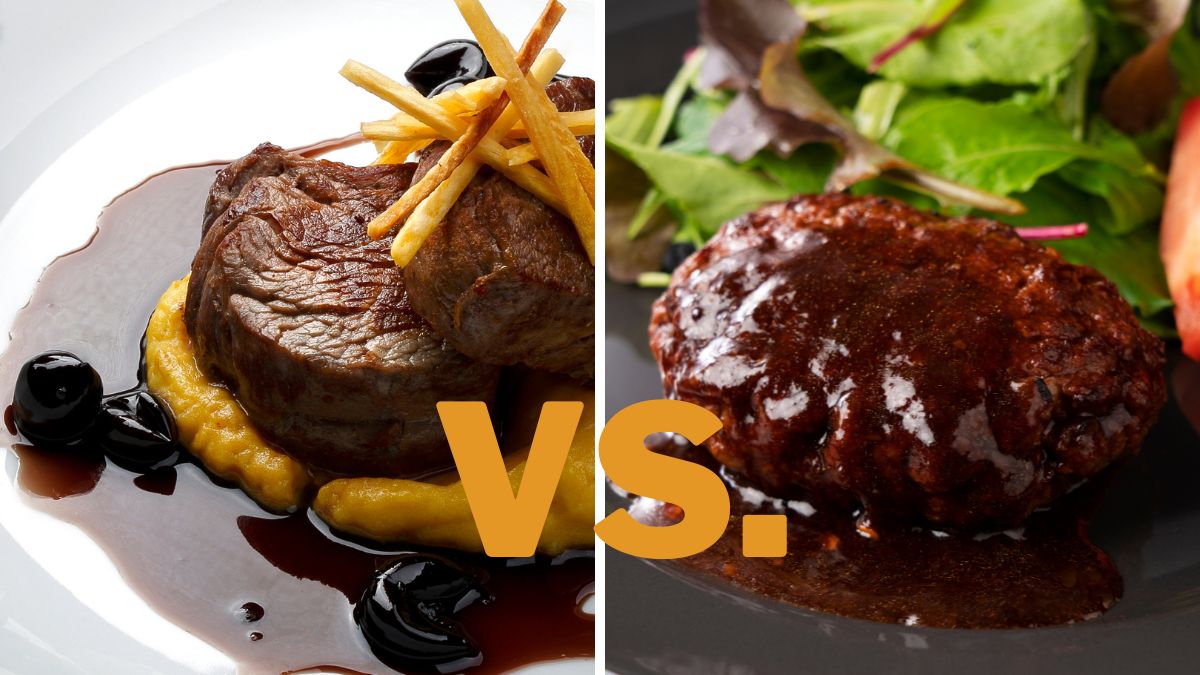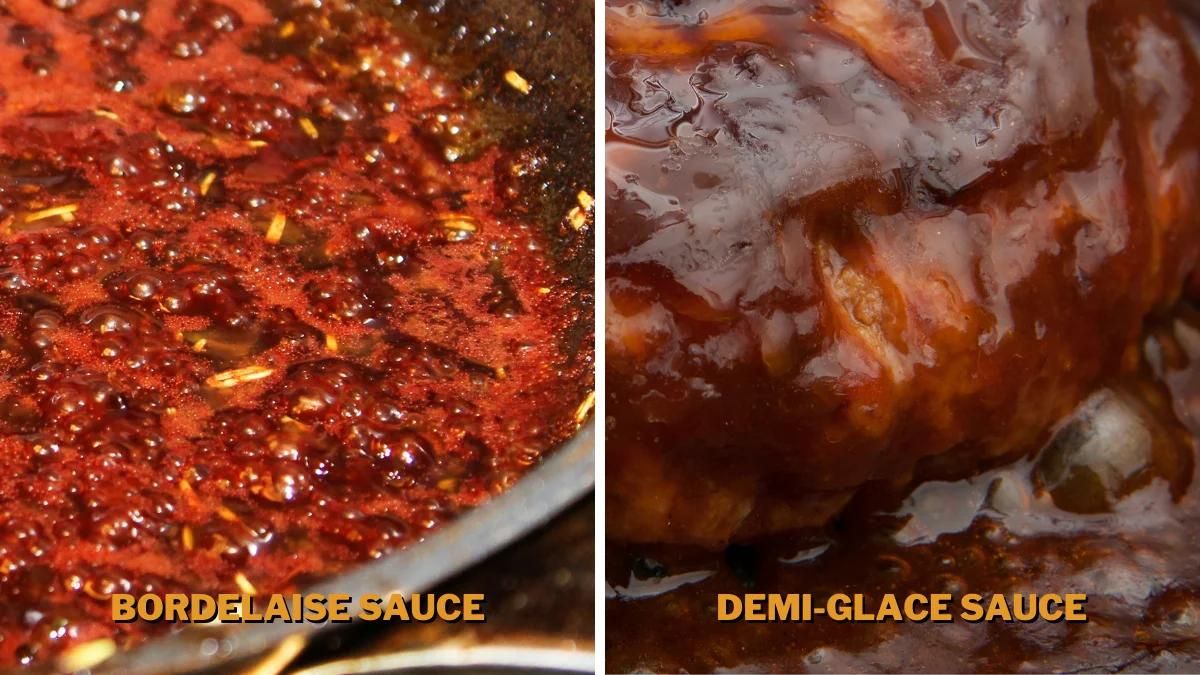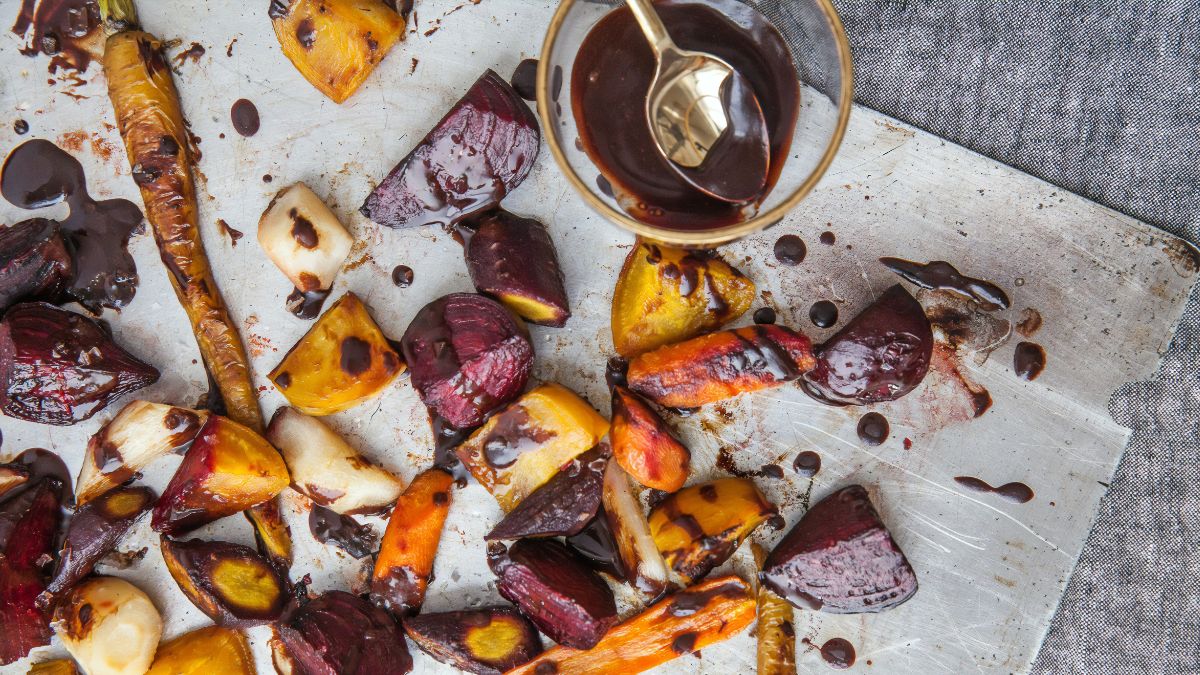Bordelaise vs. Demi Glace: Differences & How to Use Them?


Just the other day, I was in the kitchen happily working on my demi-glace. The dish I was making it for paired perfectly with it, even though it was originally meant to be paired with bordelaise. Since I was a bit lazy, I decided I could just whip up demi-glace instead of bordelaise which takes longer to cook. If you’re a fan of French cooking, then you’ve probably heard of these two sauces before. But, do you know when to use each one? To help clear up any confusion, I’m here to provide an in-depth comparison of bordelaise and demi-glace. So, what is the difference between bordelaise and demi-glace sauce?
The differences between bordelaise and demi-glace come down to their respective ingredients and preparation methods. Naturally, these distinctions affect their taste and use in the kitchen as well.
So join me as we explore this French foodie tradition and discover which sauce reigns supreme!
Ingredients
Bordelaise and demi-glace are related sauces made from beef stock, but they have several distinct differences. Let’s get into the details.
When it comes to ingredients, demi-glace is a combination of equal parts of veal or beef stock and brown sauce, plus veggies like onions, carrots, celery, and tomato paste. Conversely, bordelaise is made by slowly reducing a mixture of beef broth, red wine, shallots, thyme, and bay leaf.
Preparation
Both sauces are based on rich, full-flavored brown stock made from beef marrow bones, vegetables, and herbs.
The preparation processes of both sauces also require two different techniques. To make a demi-glace sauce, you need to simmer the stock and brown sauce together until it reduces to a syrupy texture. Bordelaise sauce takes longer to prepare as it needs to be simmered for an extended period of time with all its listed ingredients until it’s reduced.
The biggest difference between the two sauces is that in order to make bordelaise sauce, you will need to start with a demi-glace and then season it with shallots, peppercorns, and red wine. On the other hand, demi-glace calls for beef stock thickened with a roux (a mixture of flour and butter).
I rarely make bordelaise at home because it takes longer, but every time I happen to make it, it turns out so delicious that I promise myself I would make it more often. Still, time usually gets the best of me so I end up making up a different dish combination, just so I could enjoy my meal sooner.

Taste Profile
Both sauces are very flavorful. Bordelaise has an intense flavor from its red wine base, while demi-glace is more balanced due to the combination of beef stock and roux. Depending on your preference and recipe needs, you can decide which one will work best for your savory dish.
The combination of ingredients in bordelaise produces a sweet and sour flavor with a slightly smoky edge. On the other hand, demi-glace is somewhat sweeter in taste owing to its beef stock, as well as its addition of butter and cornstarch instead of tomato paste.
Demi-glace is usually velvety smooth with a subtly sweet flavor, while bordelaise has more of a robust flavor from all its ingredients combined.
Cooking Uses
Bordelaise has an intense beef flavor, thanks to the inclusion of red wine and bone marrow. Its strong flavor works incredibly well with grilled or roasted red meats like steaks and chops but can also be used to season vegetables or as a marinade. And it makes each and every meal more exquisite!
Similarly, demi-glace is rich and savory, with flavors of beef and delicate notes of herbs and mushrooms. This makes it well-suited for dishes like roasts, stews, and casseroles that need a bit of added depth. It’s also great for creating sauces for vegetables or fish if you want something that’s less overpowering than bordelaise.

Both sauces are incredibly versatile and can take a dish from ordinary to extraordinary with just a drizzle. Feel free to experiment with them and see which one suits your dish the best!
